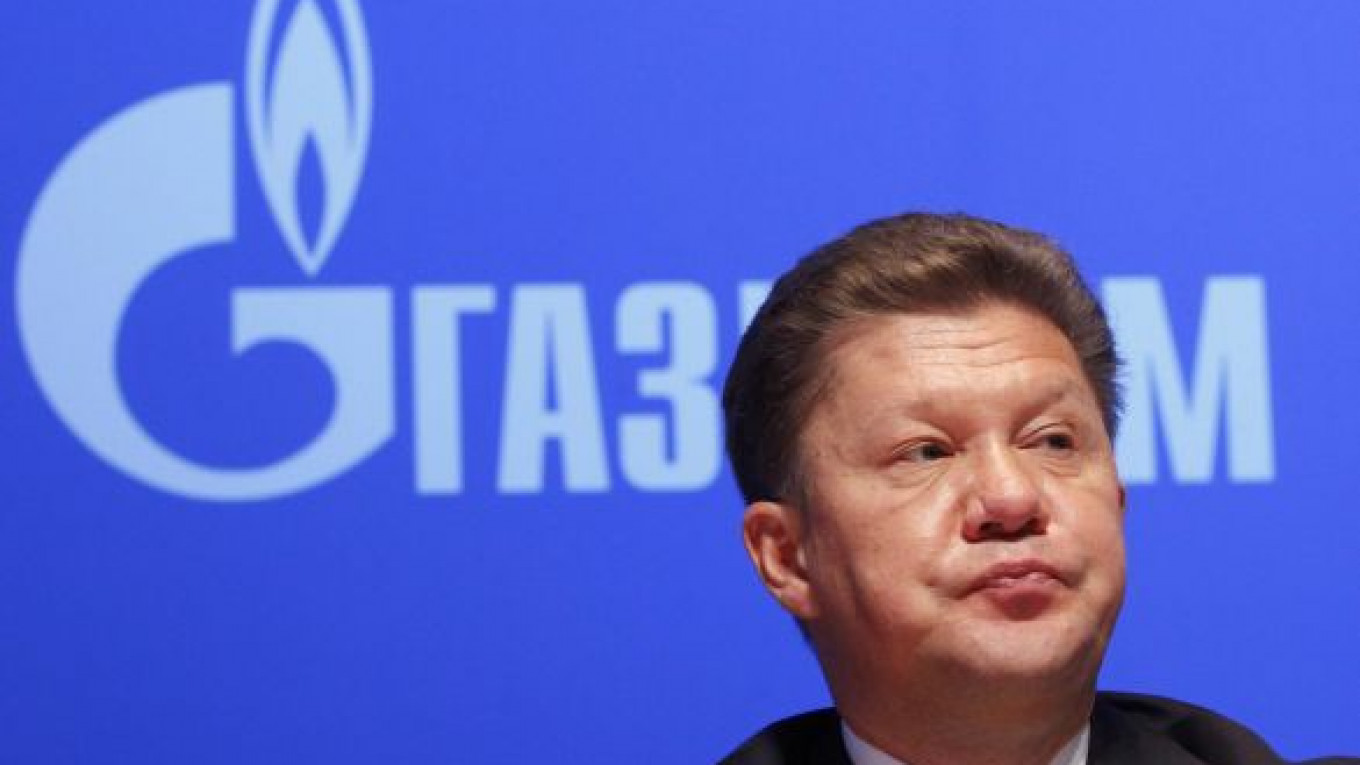Gazprom and its partners could sign a new agreement this week to develop the Shtokman offshore field, company chief Alexei Miller said Friday following the gas giant’s shareholders meeting.
He didn’t rule out that the current partners would take on a fourth company to move the stalled project forward.
The previous Shtokman agreement between Gazprom, France’s Total and Norway’s Statoil expired July 1. Sources said Shell might be the new entrant.
Under the new deal, Gazprom will, as before, reserve marketing rights for the gas from the field, located in the Barents Sea, Miller said at a news conference. That runs counter to what sources told Reuters previously.
In another update, Miller said Gazprom terminated studies of a plan to build a pipeline to Japan, concluding that it was inadvisable.
“The question of laying a pipeline to Japan is off the agenda,” Miller said.
Seiji Maehara, a member of the Japanese parliament’s committee on fundamental national policies and a former foreign minister, was in Moscow in May to discuss what he called “new opportunities” for the pipeline with Gazprom.
Miller also reiterated that Gazprom had given up on the idea of extending a pipeline from Vladivostok to China, saying the only option for supplies from the Pacific coast to China was by tanker.
Gazprom is aiming to complete construction of a gas liquefaction plant in Vladivostok in 2016 or 2017, he said. The plant would chill the gas to make it suitable for traveling by tankers.
Miller also said Gazprom had agreed to a preliminary study for expansion of the gas liquefaction plant in Sakhalin. The 10-million-ton plant is part of Gazprom’s joint venture, Sakhalin-2, which it co-owns with Shell, Mitsui and Mitsubishi.
Talking about the Western market, Miller said BP had shown interest in getting pipeline gas from Russia. Gazprom could extend its Baltic Sea pipeline, Nord Stream, to Britain, he said.
Nord Stream, where the minority partners are Germany’s Wintershall and E.On and Holland’s Gasunie, now runs to Germany. Its first line opened in November and now carries 27.5 billion cubic meters of gas.
A second line is to start operating this fall and will have the same capacity.
Separately, Miller announced a new time for starting the Bovanenkovskoye field, which will, over time, replace much of the current production from depleting deposits. The Arctic field will begin supplying gas Oct. 22, he said.
Gazprom initially planned to begin production there at about the same time, but at the end of last year it moved the schedule forward to June. Miller didn’t explain the changes. Winter is when demand for gas peaks, as power stations need more fuel to provide heat and light.
The annual meeting of state-controlled Gazprom approved dividends of 9 rubles per share, more than double that for the previous year. The dividend payout will total 212 billion rubles.
A Message from The Moscow Times:
Dear readers,
We are facing unprecedented challenges. Russia's Prosecutor General's Office has designated The Moscow Times as an "undesirable" organization, criminalizing our work and putting our staff at risk of prosecution. This follows our earlier unjust labeling as a "foreign agent."
These actions are direct attempts to silence independent journalism in Russia. The authorities claim our work "discredits the decisions of the Russian leadership." We see things differently: we strive to provide accurate, unbiased reporting on Russia.
We, the journalists of The Moscow Times, refuse to be silenced. But to continue our work, we need your help.
Your support, no matter how small, makes a world of difference. If you can, please support us monthly starting from just $2. It's quick to set up, and every contribution makes a significant impact.
By supporting The Moscow Times, you're defending open, independent journalism in the face of repression. Thank you for standing with us.
Remind me later.






